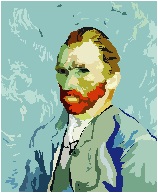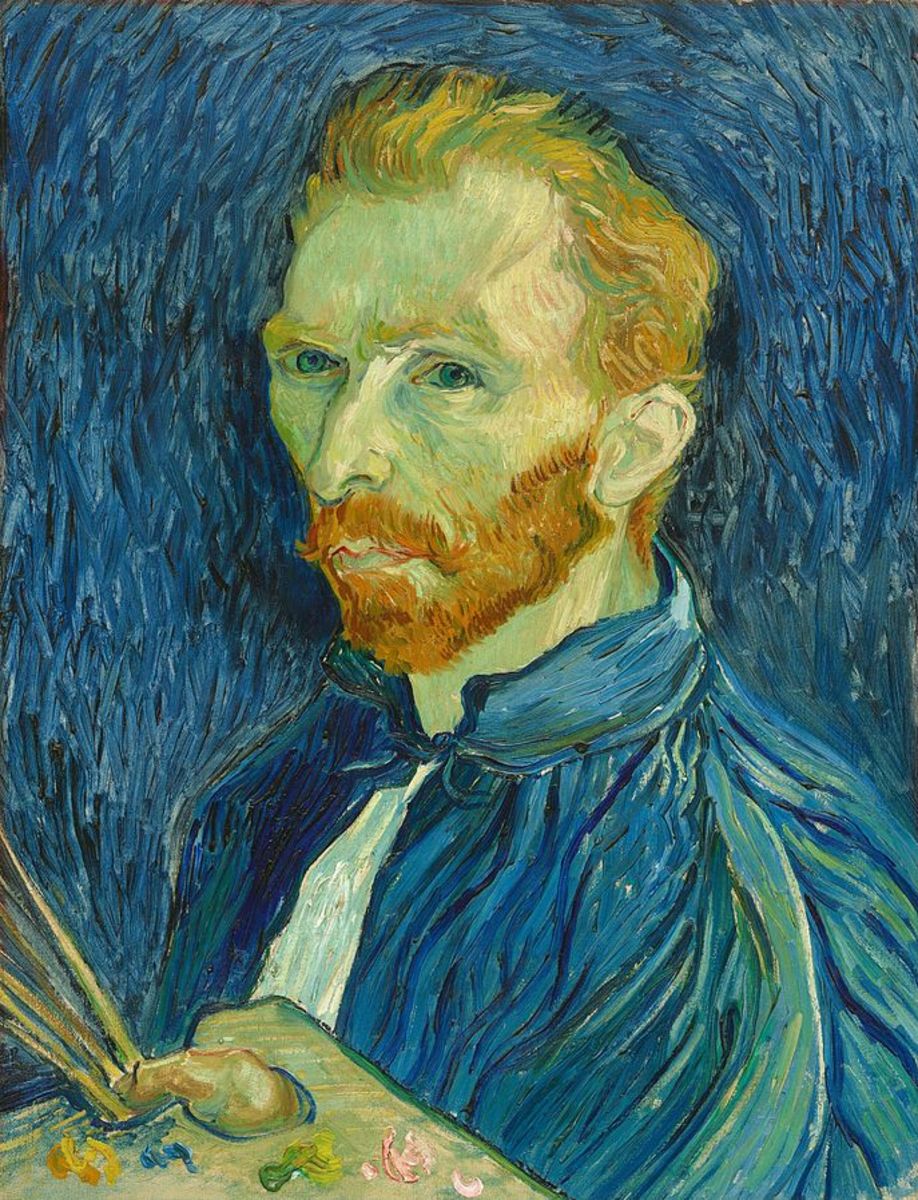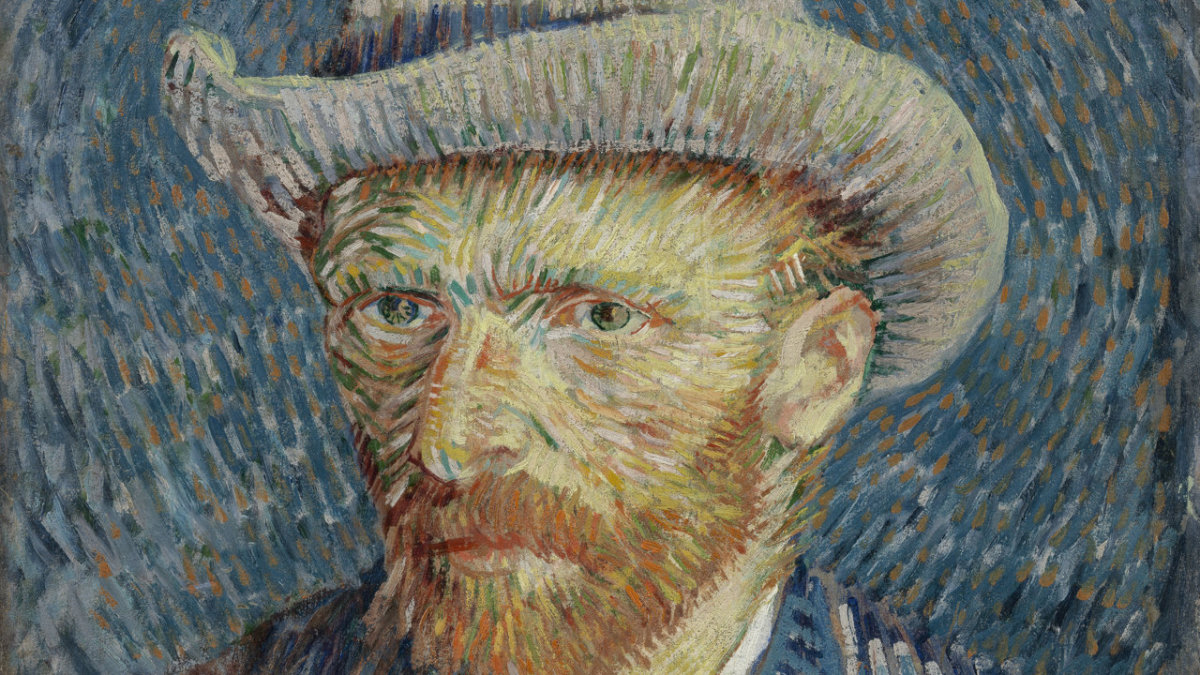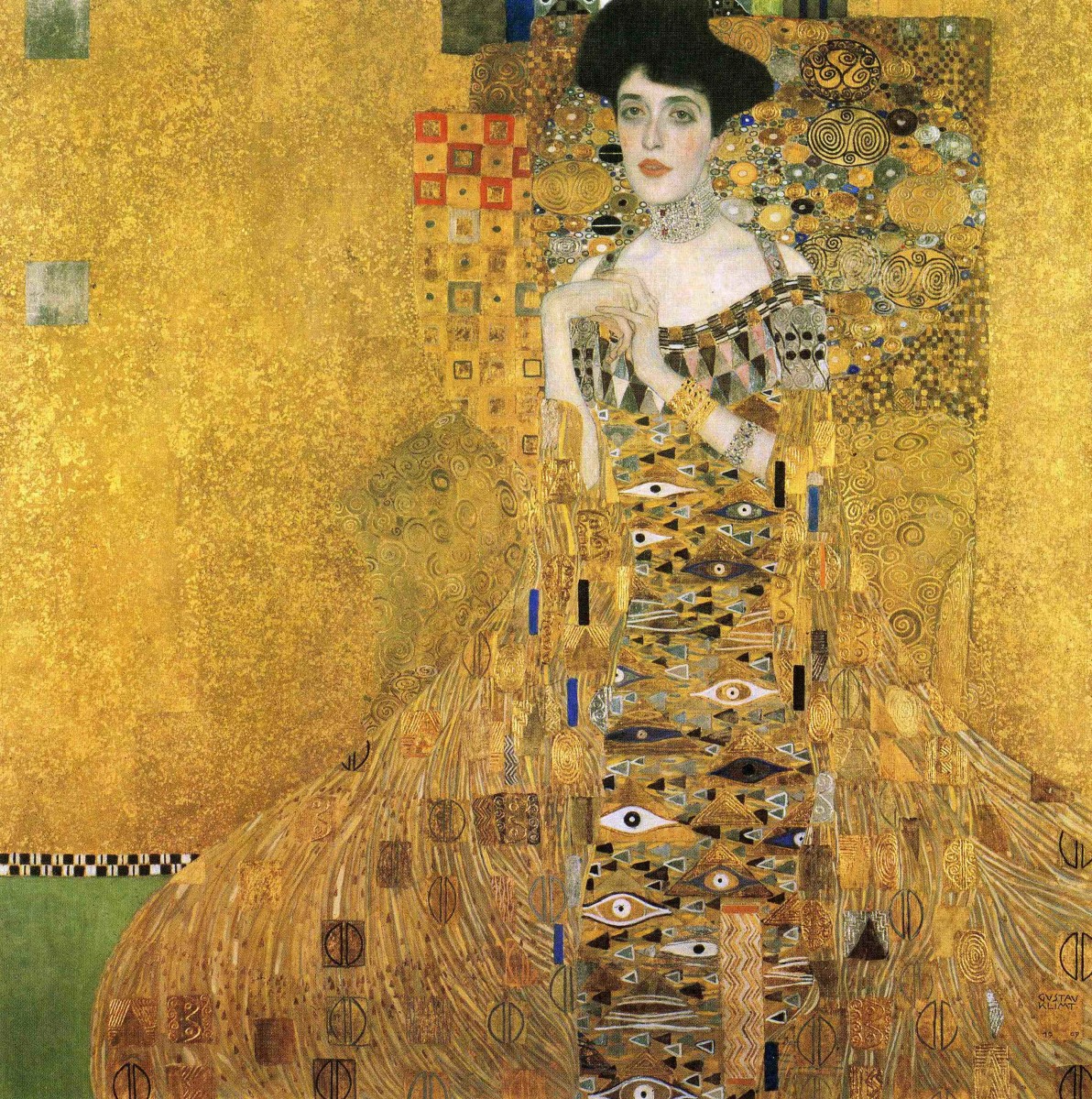Vincent Van Gogh And His Struggles With The Meaning Of Life
Vincent Van Gogh's Paintings And Writing Continue To Inspire

Living...

Inspiration...
Get hooked on the Secrets of Van Gogh Series on Kindle HD!
Learn more...
- Van Gogh Museum: new Van Gogh identified
- The 1-Hour van Gogh Book - How to look at Van Goghs (Secrets of Van Gogh) eBook: Liesbeth Heenk: Kin
This article was inspired by the works in progress of author, Liesbeth Heenk, a well-known Van Gogh specialist who is hard at work creating a series of short, fun, informative, fact filled Kindle books all about Vincent Van Gogh! - Secrets of Van GoghSecrets of Van Gogh | MEET THE MAN AND HIS ART
The 1-Hour Van Gogh Book is all you need to fully appreciate Van Gogh paintings and Van Gogh's life. The first in the series Secrets of Van Gogh e-books< - Five Interesting Facts About Vincent Van Gogh That You Probably Didn't Know
Some fun and interesting facts about fabled Post-Impressionist artist Vincent Van Gogh, whose prices are now even bolder than his brushstrokes. - Share your knowledge!
Join Hub Pages!
Would We Medicate The Talent Out Of Van Gogh If He Lived Today?
The brilliant artist Vincent Van Gogh lived a life fraught with depression and self doubt. Although today he is one of the most renowned artists worldwide, in his lifetime he was not well-known or successful and in fact only ever sold one painting. In a letter dated May 8, 1875, Van Gogh asserted that humans are not placed upon the earth for the purpose of happiness. He said that, instead, humans are placed on the earth to be honest and noble, to attain great achievements and to grow past the basic vulgarity that pervades existence.
Upon attending a viewing of a friend who had died in 1877, Van Gogh wrote that it seemed his friend had been freed from the burden of living. He lamented that life is made up of twists and turns that carry a person from despondency to cheer. He seemed to feel some envy for his friend, who was now free of the ups and downs of living, yet, he admitted to a certain attachment to life and the anticipation of things getting better when they have gone wrong.
Van Gogh Struggled To Make Use Of His Christian Upbringing To Deal With His Depression
Several years later, on July 7 1882, Van Gogh professed to believe that it is the will of God that men not dwell alone. He said that he felt a normal life would include a woman and child, yet Van Gogh was never to experience this sort of normal life. Nonetheless, in a letter dated March 11, 1883, he admonishes the recipient not to consider him unfortunate. He says that, even though he sometimes considers himself unfortunate, he understands that this is common to most people and is not a unique experience for him.
In later letters, the artist complains that he is disappointed in himself because he feels that he has not been able to attain his goals. Instead, he says that he is struck with sorrow because everything he does seems to be wrong. As early as February 8, 1887, Van Gogh's letters indicated that he was becoming weary of the world and tired of his pursuits. Although he quotes the words of Jesus Christ entreating him to accept the light and easy yoke of Christianity, he seems unable to follow through and relieve his apparent depression.
An Active Mind And Blazing Intelligence Led Van Gogh To Speculate On The Nature Of Existence
As Van Gogh grew older, he continued to reflect on the words of Christ in juxtaposition with the discoveries of science. In a letter dated June 26, 1888, he observes that science brings people new knowledge and varied perspectives every day. He uses the knowledge that the earth is round as an example. He says that; even though, the earth still seems flat to the casual observer, the general populace now knows it to be round. This changes the general world view. He speculates that, just as we now see life as being "flat" with a single life followed by an afterlife, it may well be that life is "round". He expresses hope that future generations will see the superior nature and greater potential of this sort of life-view.
In a letter dated June 25, 1889 Van Gogh alludes to a book he has received from his sisters called Le Sens De La Vie (The Meaning Of Life). He declares that it is rather a disappointing book since the author is apparently suffering from lung disease, and therefore, has problems in many realms of his existence. Van Gogh says that he thinks it is nice that the author enjoys spending time with his wife but that this information is of little use to him (Van Gogh) in terms of discovering the meaning of life. He says that he greatly prefers Voltaire's Zadig ou la Destinée (The Book of Fate) a work that at least approaches the subject with some passion.
In a letter dated July 2, 1889, Van Gogh expands on this theme by pointing out that people are generally unaware of all the hidden potential in life. Instead, they seem to view human existence as having attained its apex and to now be in a state of decline. He laments that people seem to be happy biding their time in tame pursuits until the end rather than actively seeking a passionate reason for living.
Is Life "Round"?
Vincent Van Gogh was born in Holland on March 30, 1853. Near the end of his short life, he wrote of missing the days of his youth. In a letter dated January 20, 1890, he laments that he is aging and that life seems to be rushing past as responsibilities mount. He expresses a need to make up for time wasted, yet realizes that this is becoming harder and harder as his depression deepens. Van Gogh sought help for his depression and seemed to be improving in May of 1890, yet he suddenly took a turn for the worse and apparently committed suicide by shooting himself in the stomach in July of 1890. He survived for a couple of days afterward and during that time was quoted as saying that his death would be "for the good of all".
The natural reaction to such an unfortunate and sad story is to remark on what a shame it is and what a waste of life, but is that true? If Van Gogh lived today, would he have the freedom or the inspiration to create his masterpieces or would he be medicated and set on a practical path to get a job, marry, reproduce and live a "normal" life?
I tend to think the latter is probably true. I believe that Van Gogh's time on this earth was just exactly as it was intended to be. Surely his brilliance, intelligence, talent and philosophical reflections have positively influenced far more people than a "normal" existence would have. Perhaps his life unfolded the best way possible for the "good of all", and perhaps if life is indeed "round" the continued joy and enlightenment his work has brought others have brought peace and contentment to his soul.
Copyright:SuzanneBennett:June 15, 2013












